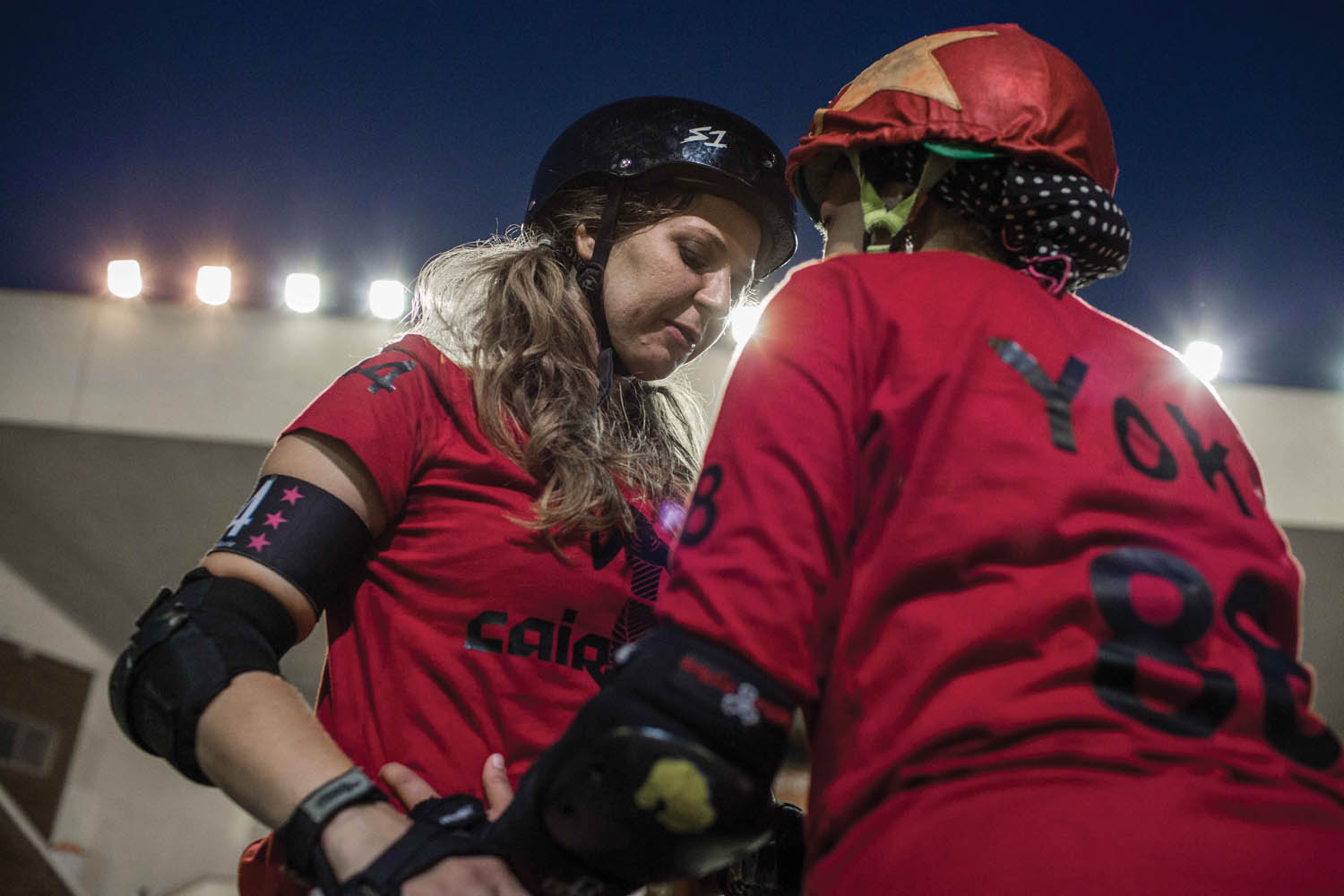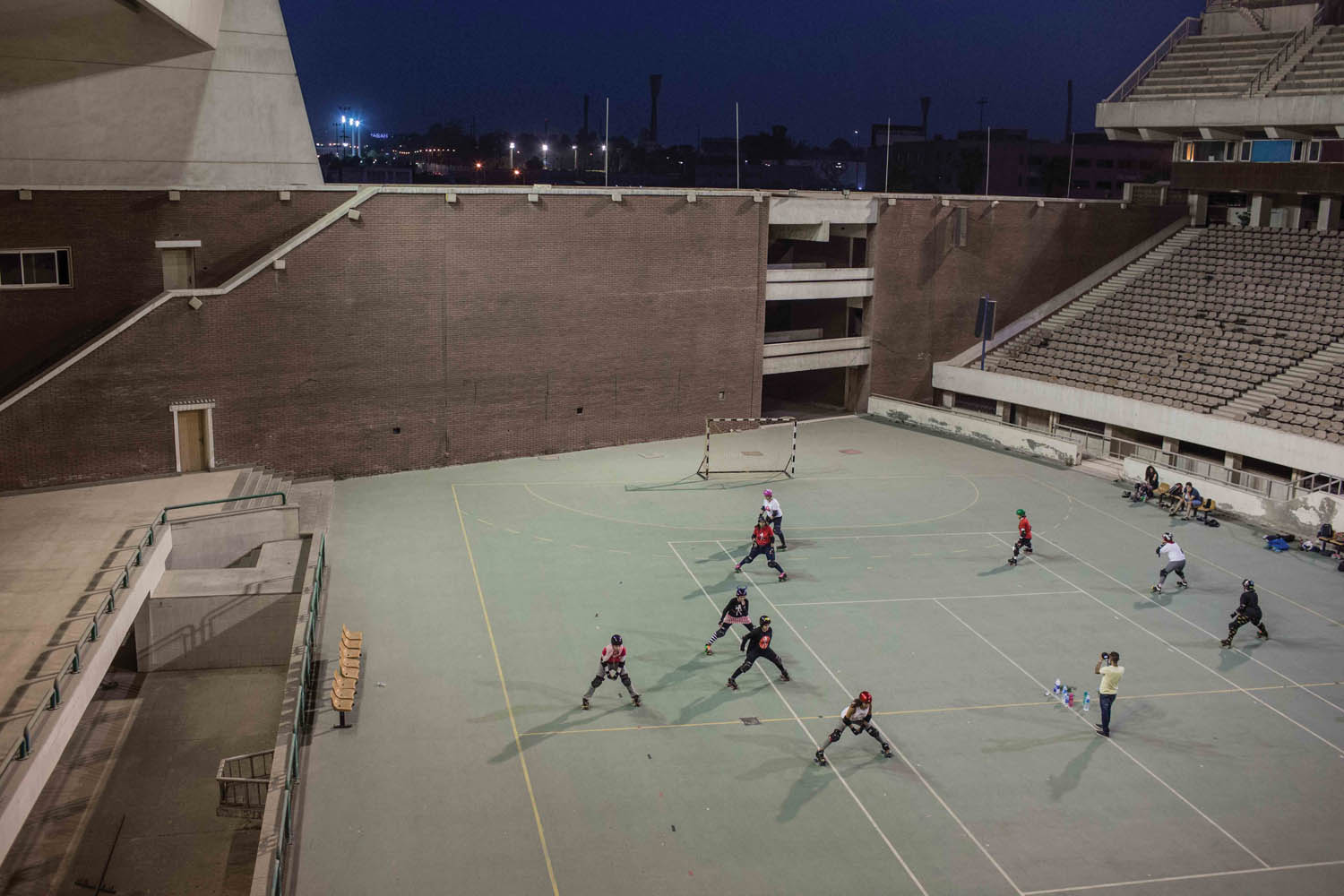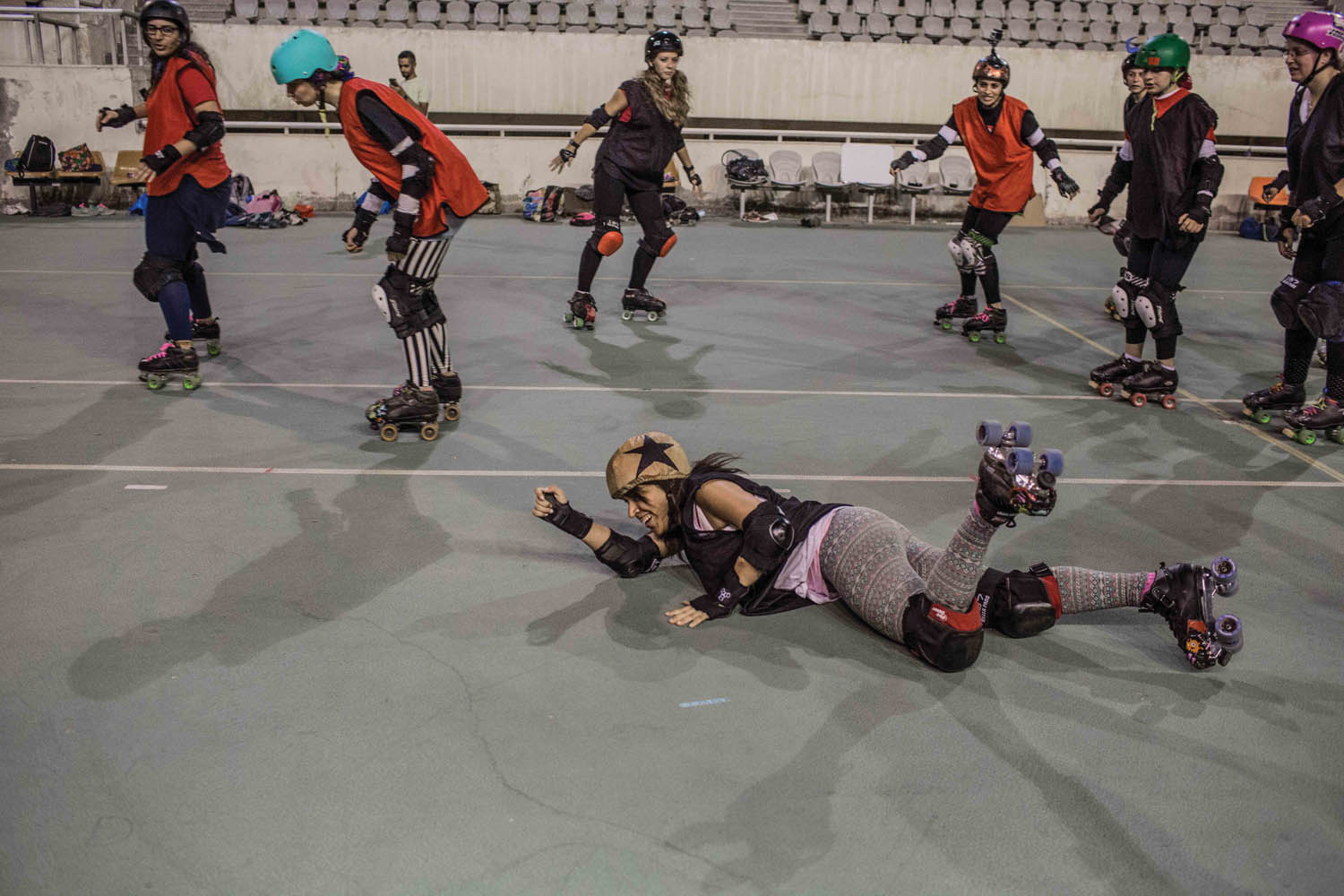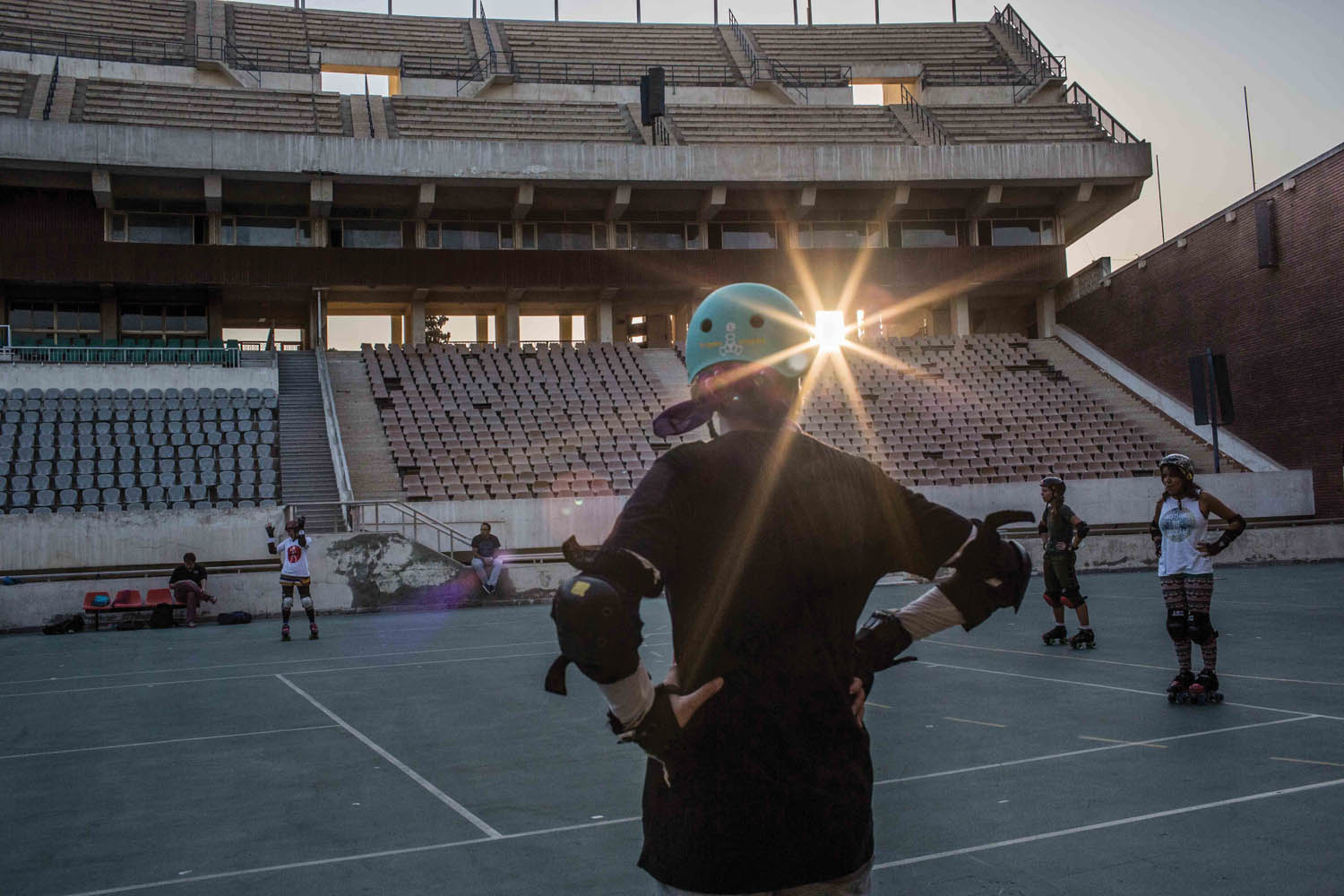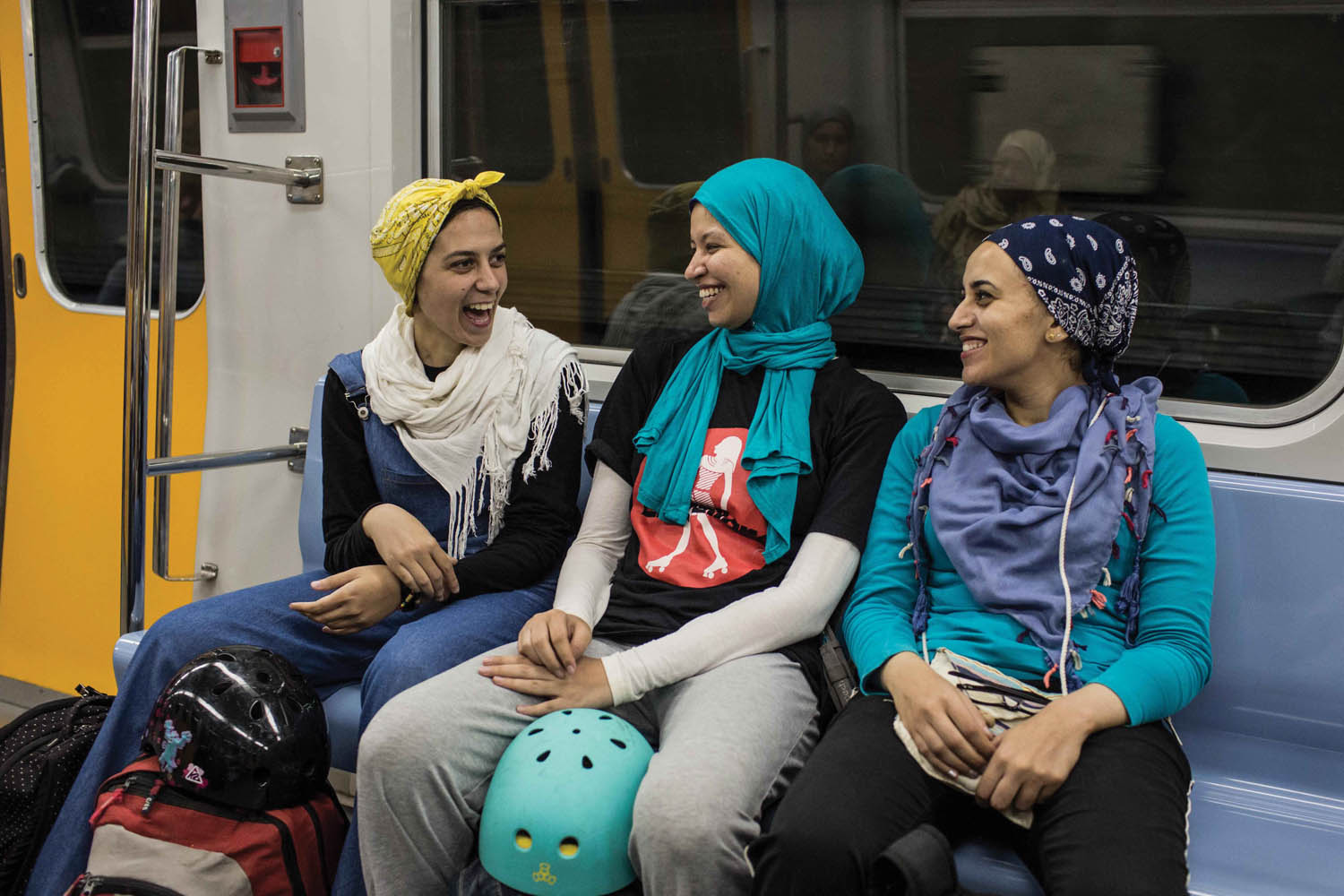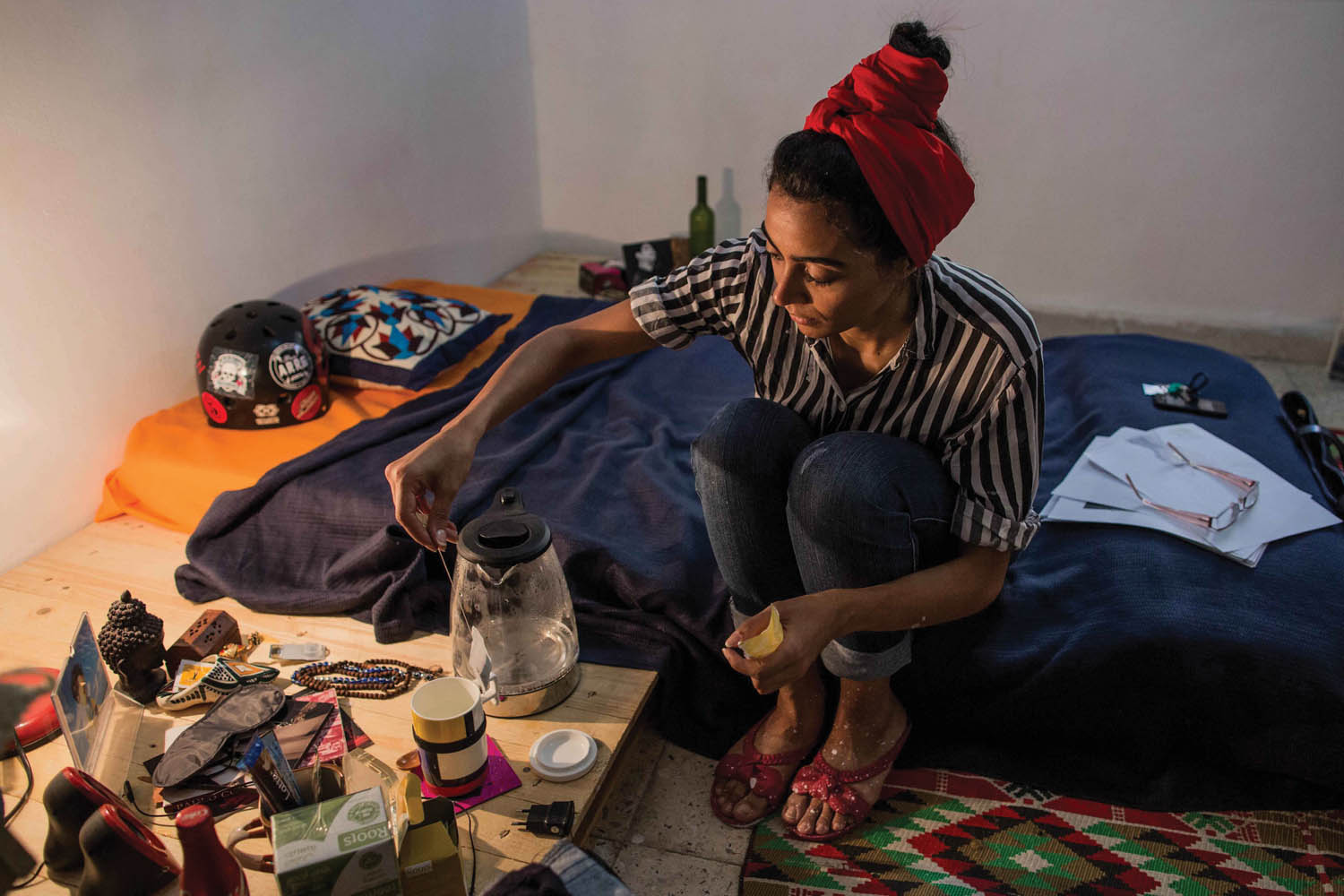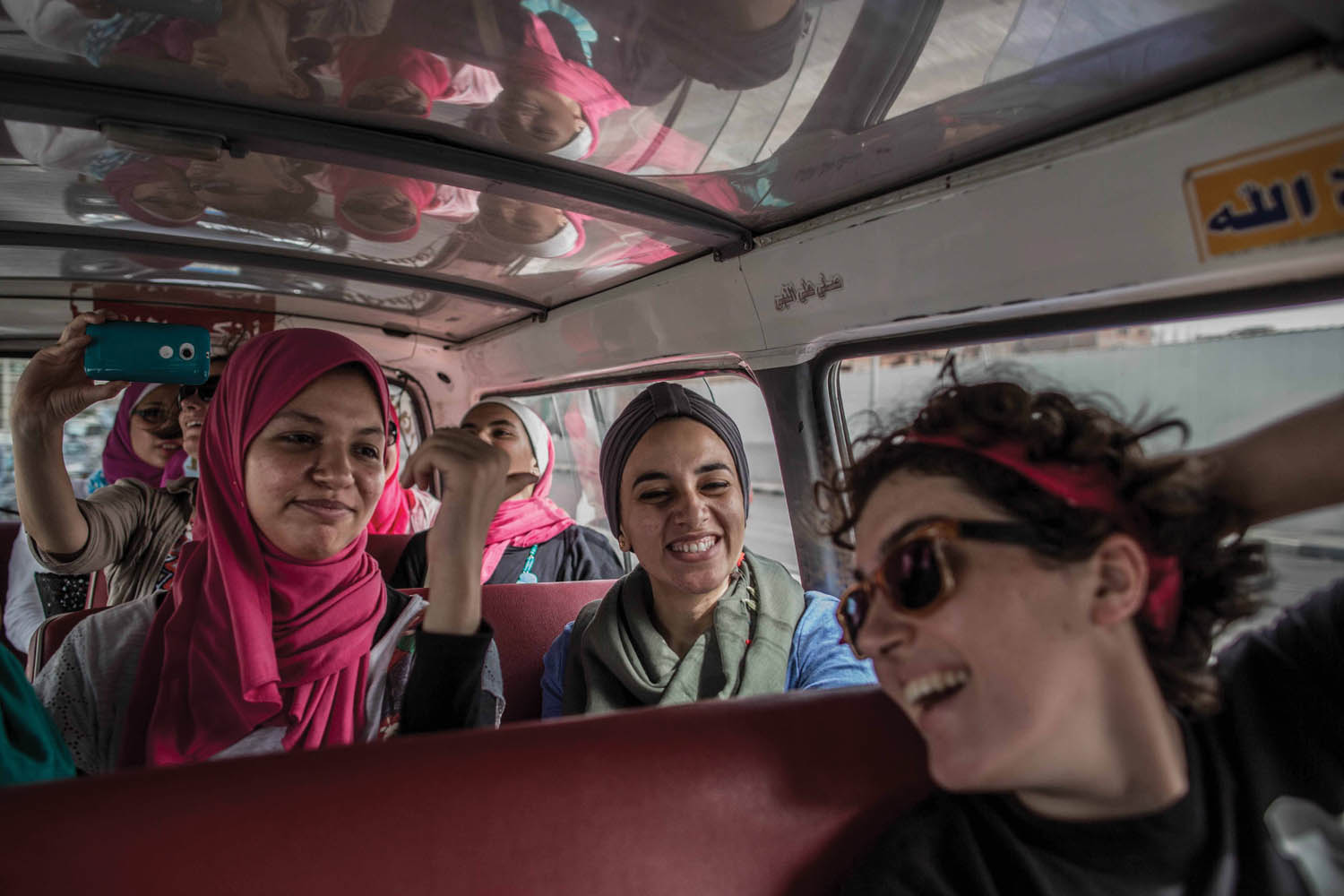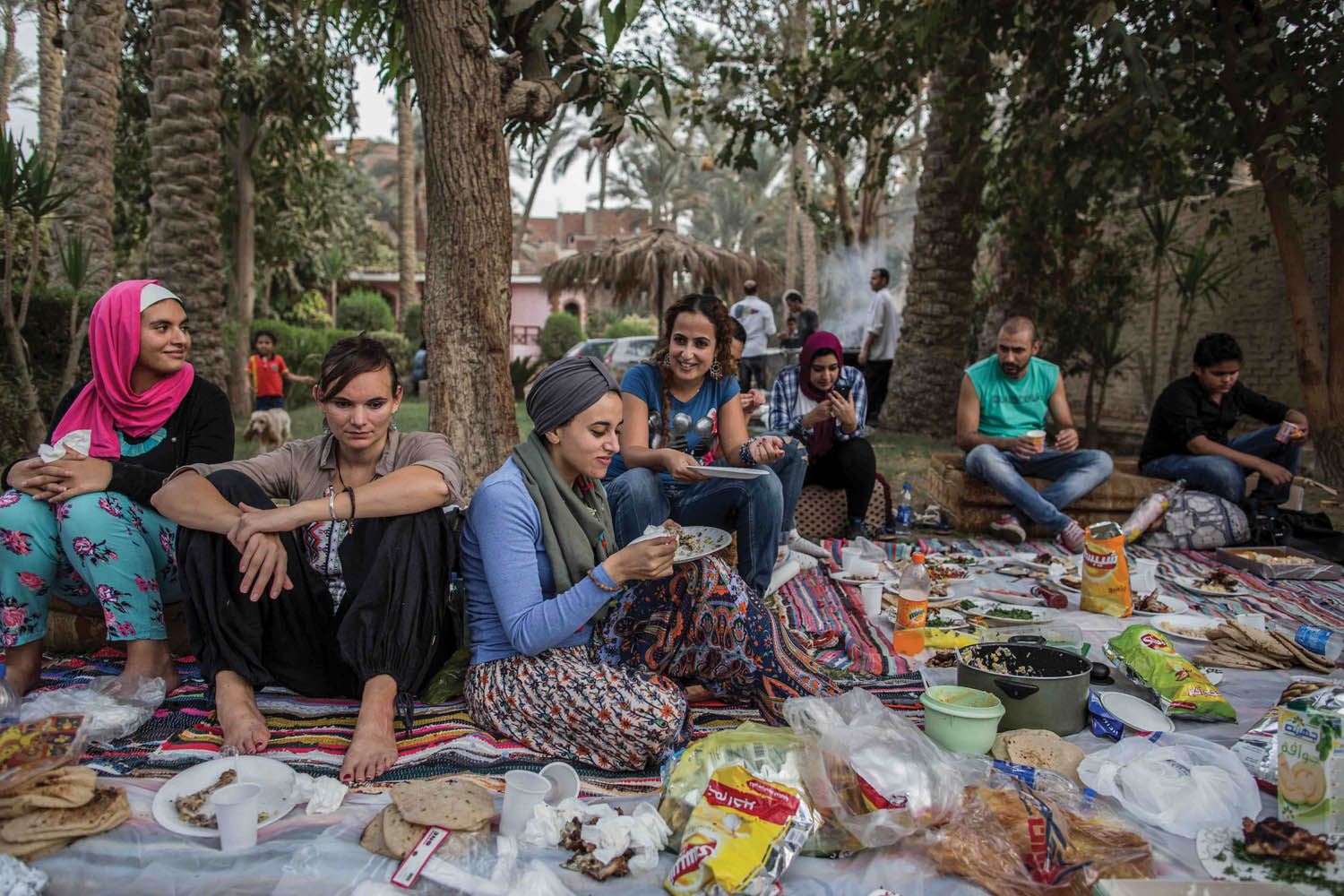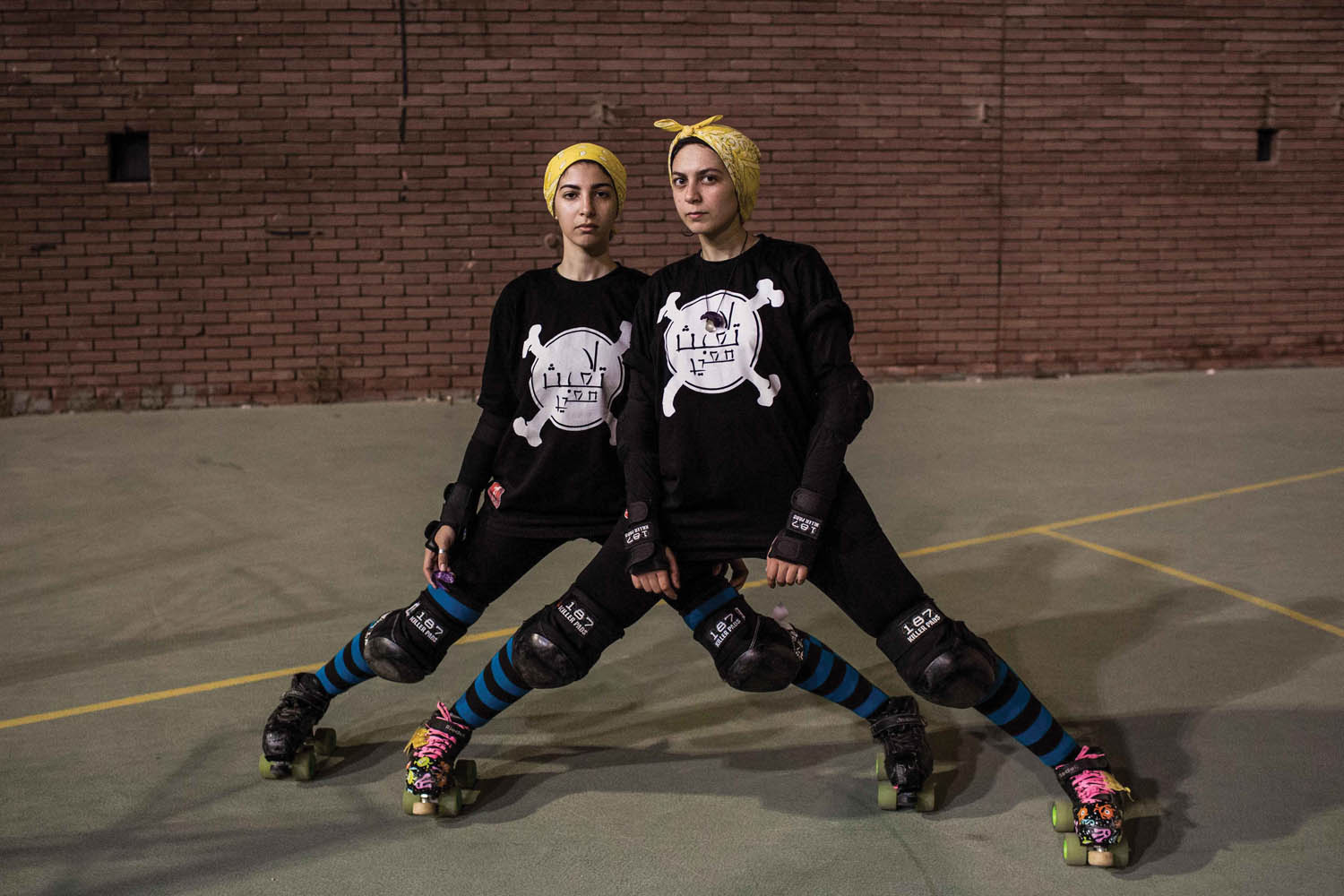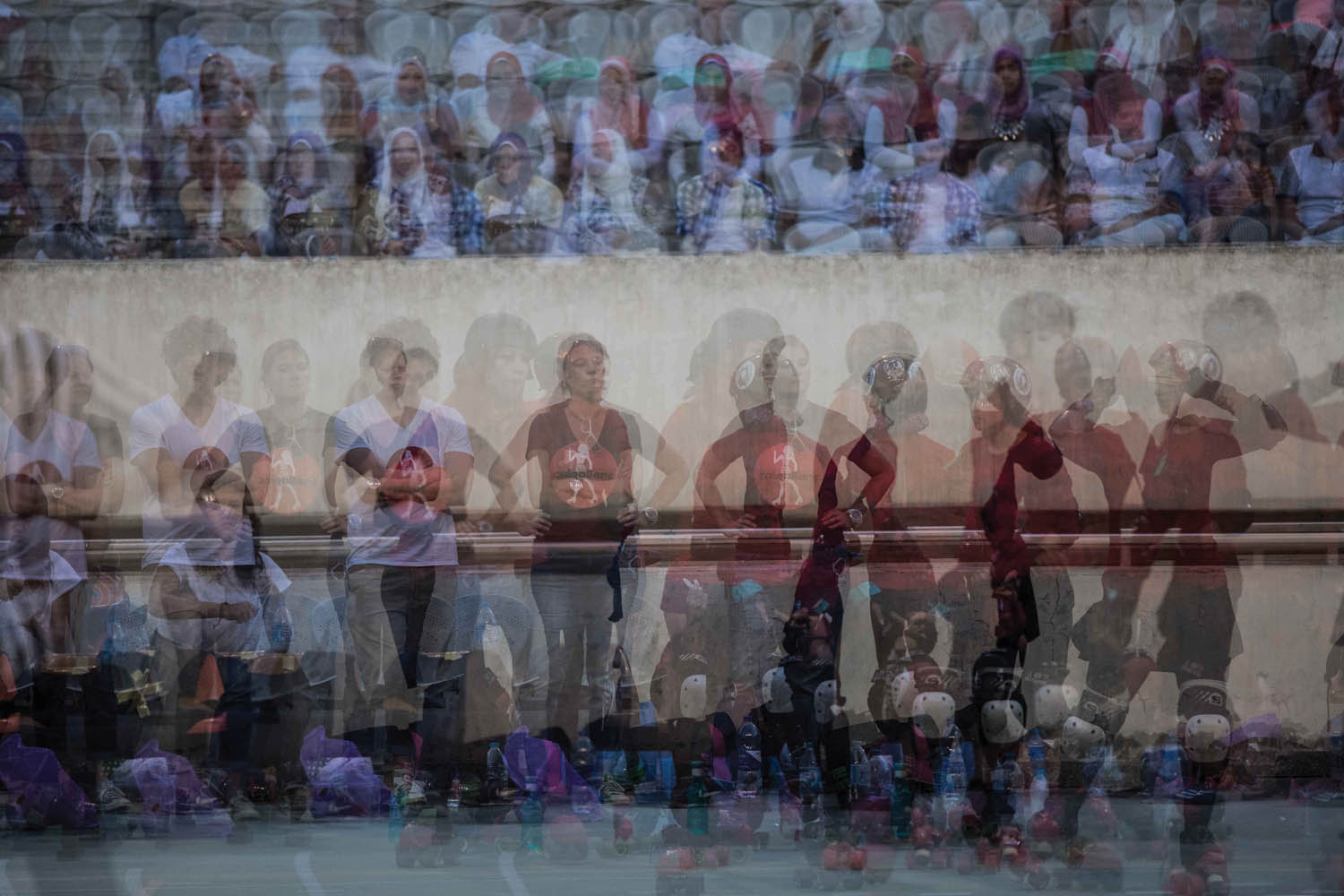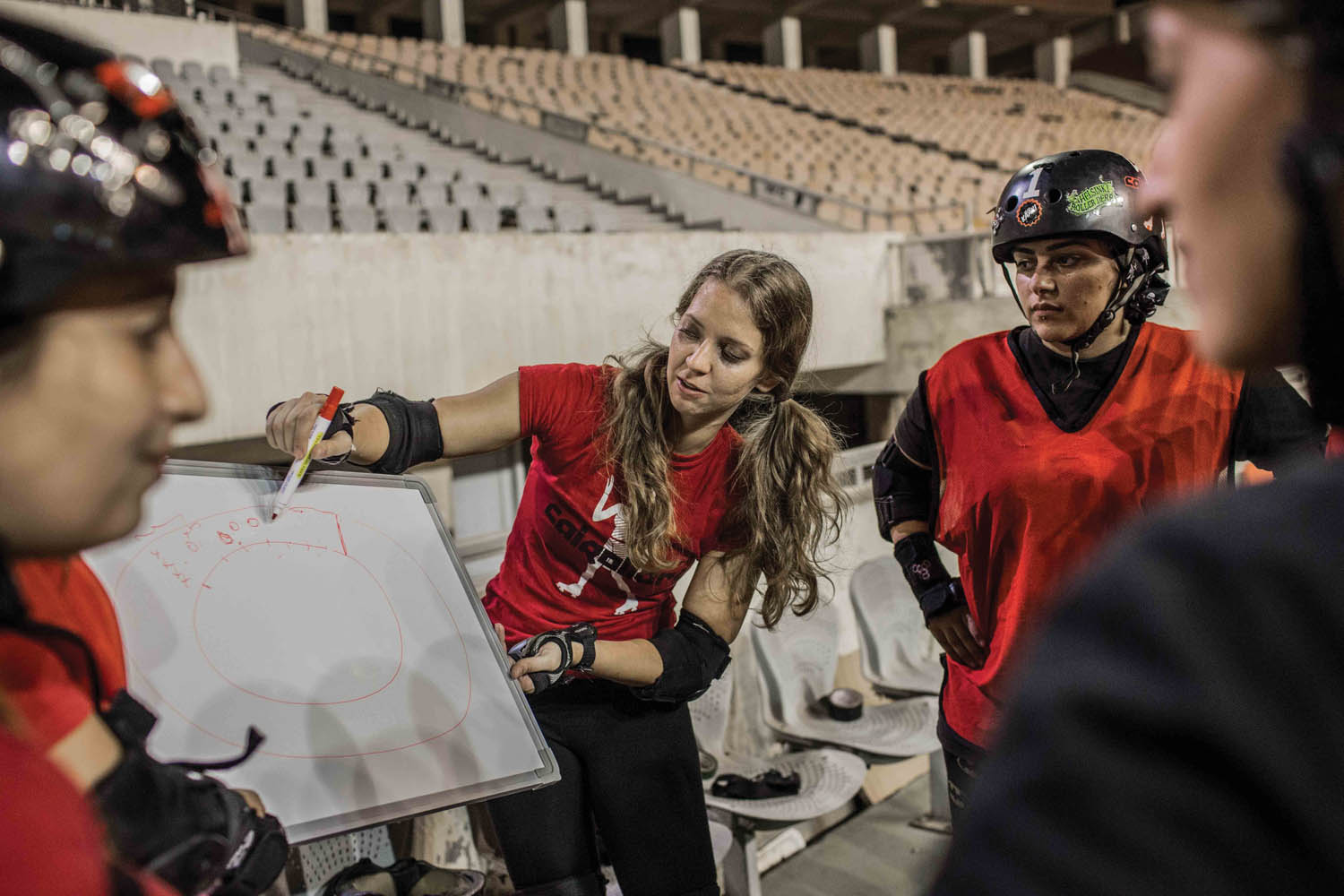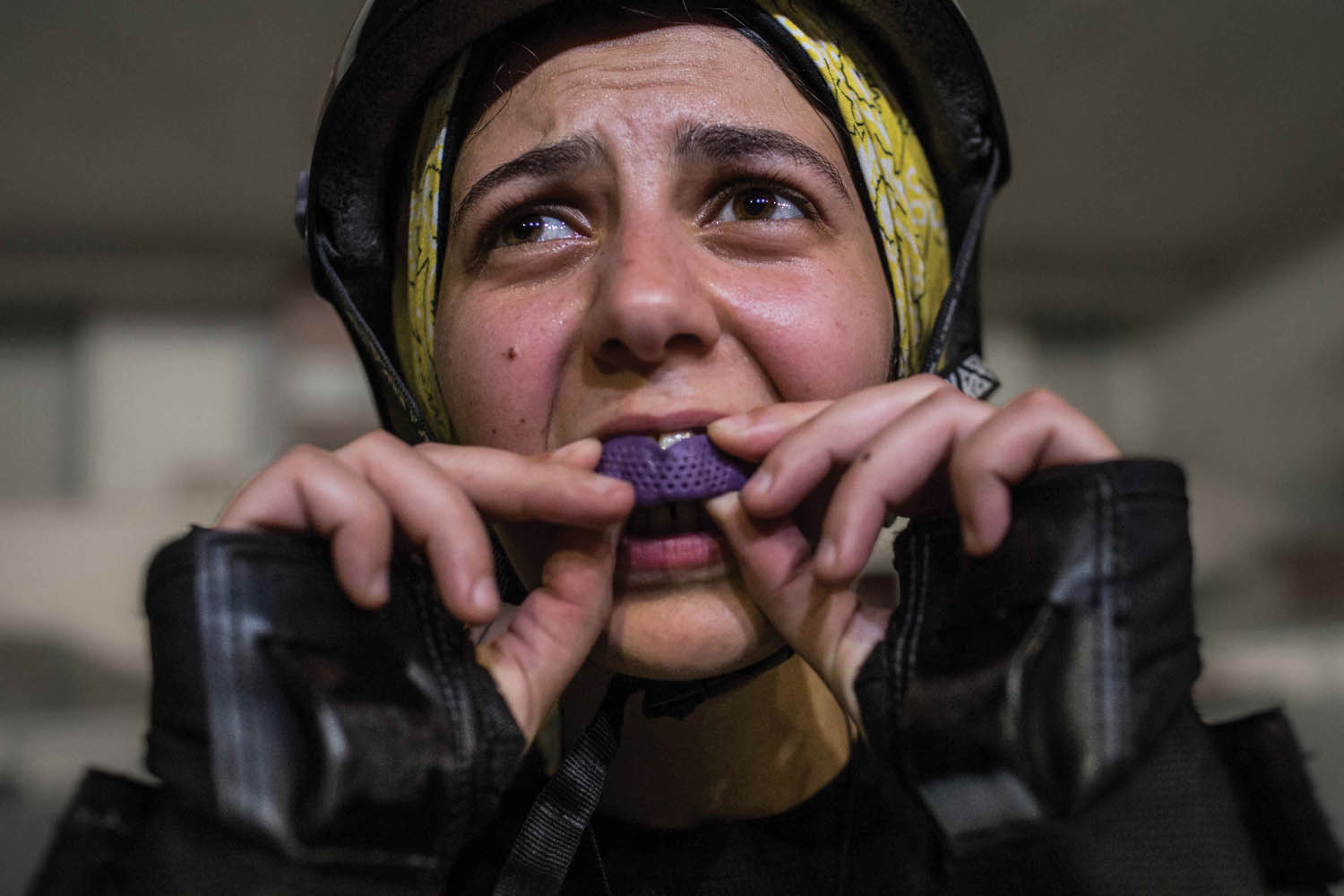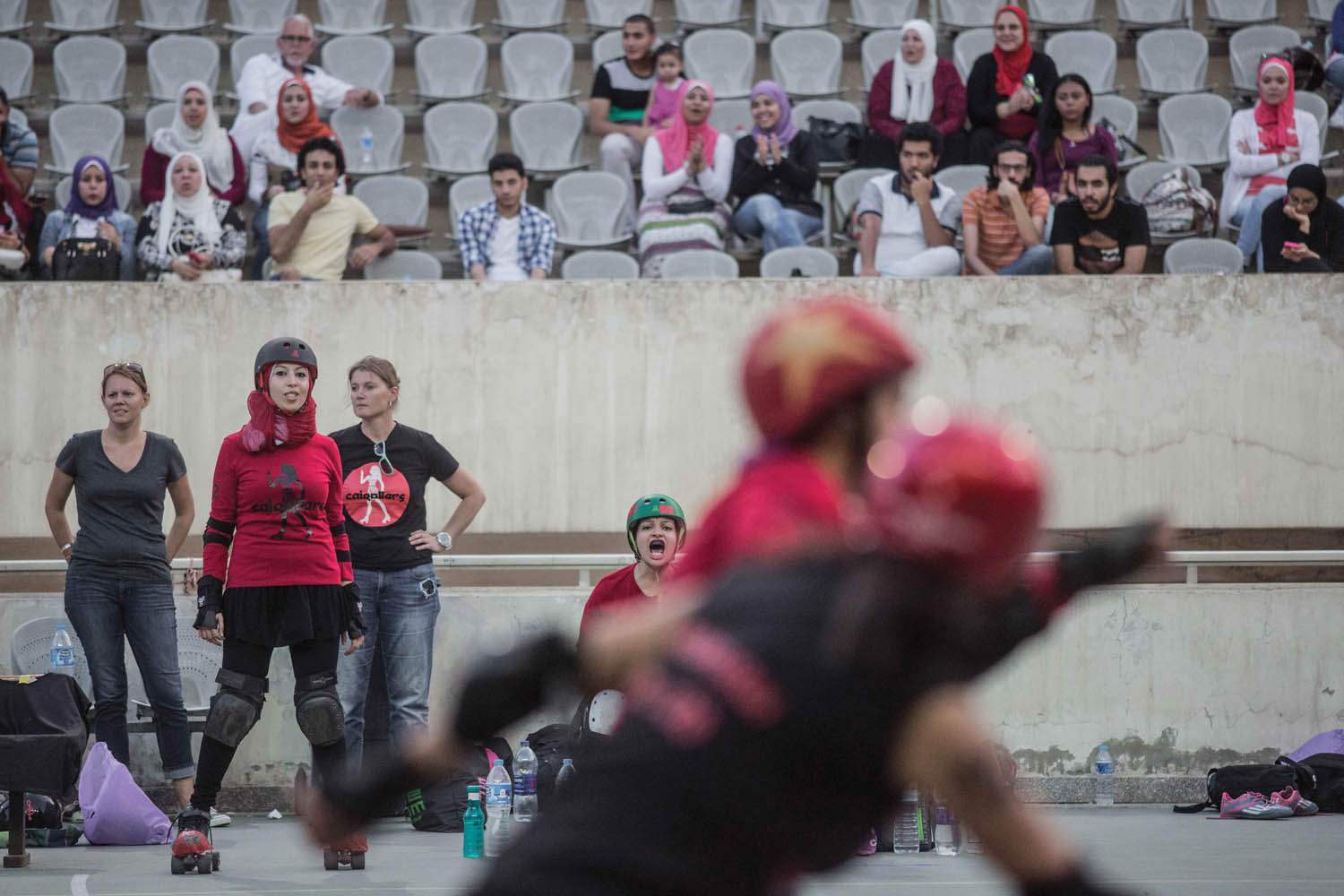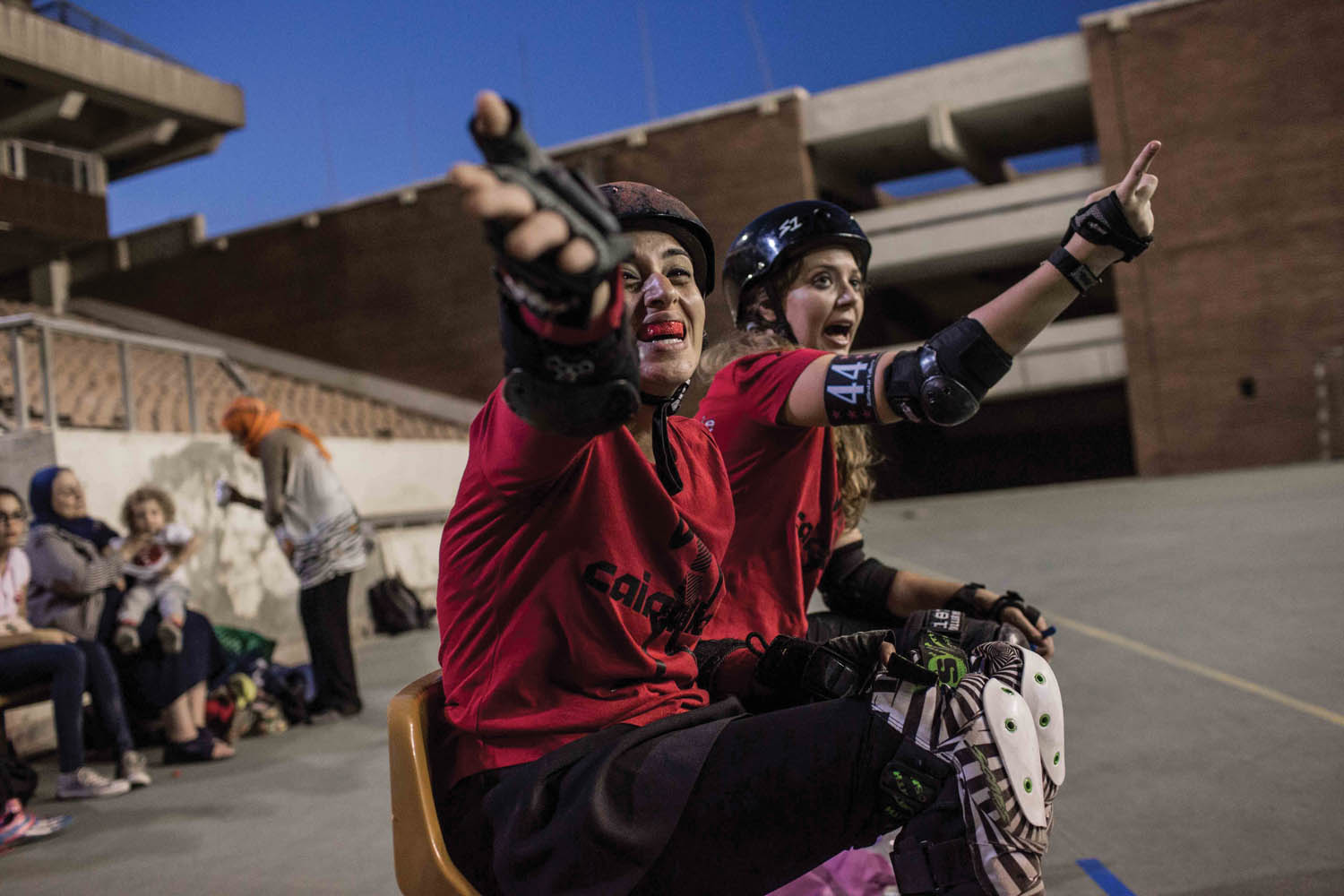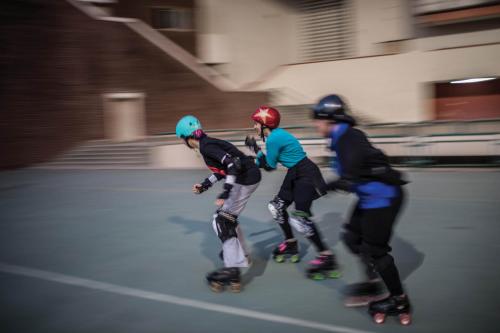
Nouran Elkabbany’s family wasn’t thrilled about the idea of her joining a roller derby team. They worried about all the ways she might damage her body. In Egypt’s patriarchal society, there are certain expectations: among them, a woman shouldn’t have visible scars; eventually, when she gets married, her husband will expect her body to be unblemished.
Nouran gave her parents plenty to worry about: scraped knees, eggplant-colored bruises, and jammed fingers. She played relentlessly, dripping blood onto the track. She didn’t give her wounds or her family’s concerns a second thought.
Noha Eid decided to take up roller derby after one of her best friends passed away. Suddenly her fears seemed worth facing. Falling was one, and in roller derby falling is one of the first things you learn to do well.
Sports can be subversive: They can speak to the political without explicitly addressing it. In Egypt, where harassment and violence against women ranges from catcalling to genital mutilation, playing a sport can be an act of resistance.
During the protests that followed the revolution in 2011, women endured all manner of violence and degradation. One image that quickly went viral was of a female protestor being beaten by members of Egypt’s army, her abaya torn off and her shirt lifted to reveal her now-iconic blue bra. Her humiliation became symbolic of the struggle of Egyptian women, who, in addition to state violence, have long suffered domestic and sexual abuse. Nazra for Feminist Studies, an Egyptian women’s rights group, recorded at least 500 survivors of rape and sexual assault by mobs between February 2011 and January 2014, and thousands more victims of sexual harassment. In 2013, Human Rights Watch described an epidemic of sexual violence in Egypt, citing more than ninety attacks during four days of demonstrations.
In response to the blue-bra incident, women from all over the country marched in protest, demanding an end to military rule and a larger role in political life. Two and a half years later, Egypt criminalized physical and verbal harassment of women—progress, certainly, but not nearly enough. Yet hints and moments of female empowerment have materialized here and there, including groups for female street artists and spoken-word poets, and a rise in female entrepreneurs heading tech, social, and fashion start-ups. Among the more subtle ways in which women have empowered themselves is through physical sports.
Egyptian photographer Eman Helal found herself drawn to the physicality of roller derby, to the ways in which women could barrel into each other with such force, yet share warmth and concern for one another off of the track. “The players demonstrate that you could be beautiful and loving and at the same time fight to win,” Helal says.
CaiRollers was formed in 2012 by expats living in Egypt who had played in their native countries. They invited Egyptian women to join—first their colleagues, then, through Facebook events, women who, until then, were strangers. Now the team consists almost entirely of Egyptians, with only two foreigners. Most of the players come from middle-class families, and all of them navigate the demands of life away from the game, be it a job or school or family commitments. Nouran works as a graphic designer; her teammate Lina Elgohary, as a pharmacist; Heba Elkest, an animator. Aya Tallah Yousef edits videos and Valerie Urso, an American, teaches kindergarten art. Some of these women joined simply to try something new; others were drawn to it because they’d never had the privilege of playing sports as children.
Roller derby is relatively accessible: It doesn’t require a lot of training, or a certain body type, or even much physical fitness. But it can get expensive—you need skates, helmets, and padding, as well as a designated space. CaiRollers tried reaching out to different sports clubs in Egypt for sponsorship, but none were willing to offer it (Egyptian sports clubs are notably less interested in sponsoring female teams). Instead, other roller derby teams around the world contacted them and sent gear and field equipment. The players pooled their own money to rent a stadium so they could practice three times a week (they can only afford to put on one match a year). Friends and family members also helped out. The referees, meanwhile, are all volunteers.
Each player on the CaiRollers has a “derby wife,” a member of the team whom she’s chosen, and whose job it is to look out for her needs both on and off the track—a glass of water, protection from an opposing player, an ear when she wants to talk through a problem. They dress alike, they walk each other home after practice, they think of each other as family. They share a sisterhood.
The personalities of the CaiRollers manifest partly through their makeshift uniforms, comprised of T-shirts screen printed with queen Nefertiti in a skirt; sticker-adorned helmets; multicolored skate wheels and laces. Despite their superficial differences—some wear hijabs beneath their helmets, others let their hair spill out—these distinctions seem secondary to the players. Their clustering on the track isn’t all that different from the cohesion that forms off it, during a sunset boat ride along the Nile, a nighttime supermarket run, a potluck in the park.
In roller derby, a team scores when a player, known as the jammer, laps the pack for a second time and for each subsequent lap. You can spot the jammer by the star on her helmet as she maneuvers her way forward, skillfully and aggressively, while her teammates thrash and hurl themselves at the opposition to protect her. A crucial strategy in roller derby is called “passing the star,” when the jammer hands her star helmet cover to a teammate, known as the pivot, in mid-stride—when she’s winded or injured, if she feels like she may fall. That way, the team can surge forward without her.
There’s a circular, tragic logic guiding the lives of Egyptian women. They are encouraged to get an education, to get a job, but only as a means for getting married, at which point they are expected to drop their careers and focus on raising children. In its own way, roller derby allows these women to occupy a new space with different ambitions, a space where they can strive toward something they love to do, where a purpose exists beyond finding a husband—contrary to her family’s fears, Nouran’s scars did not prevent her from marrying. A space where the objective is to keep skating forward, and to ask for help from women when help is needed. A space where expectations fall away, where the goal, individually and collectively, is to persist.
— Zaina Arafat


